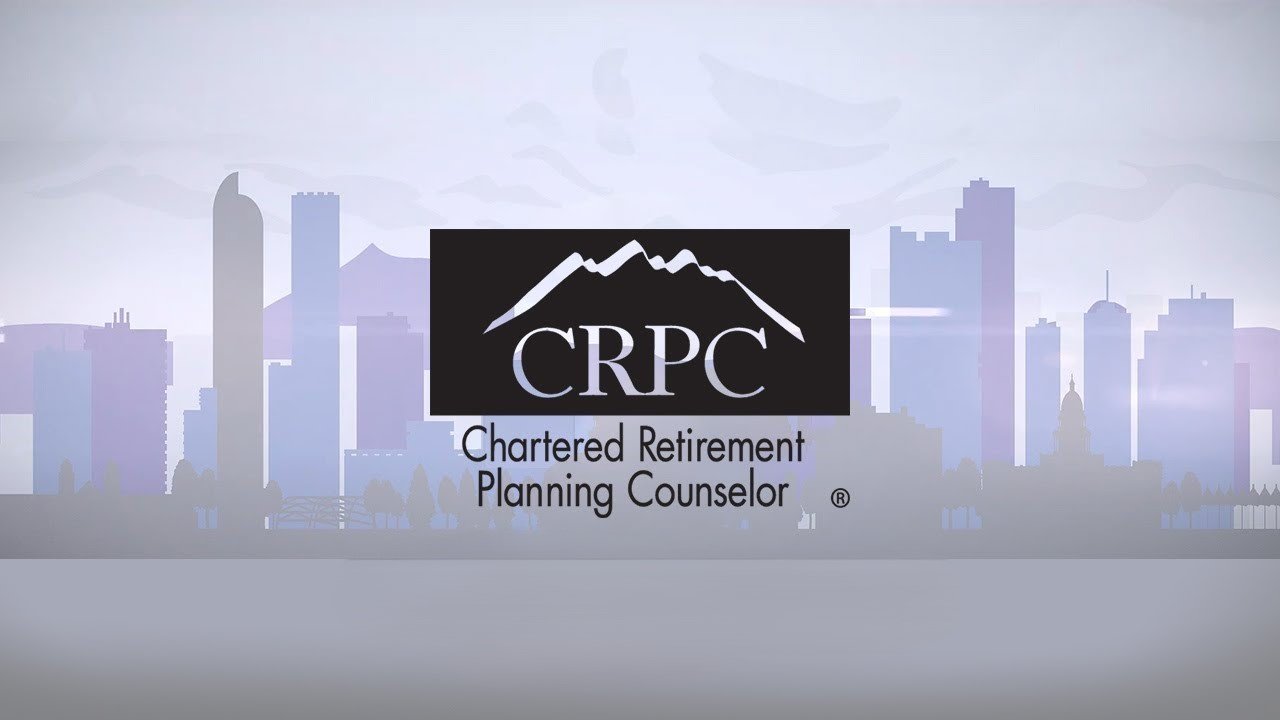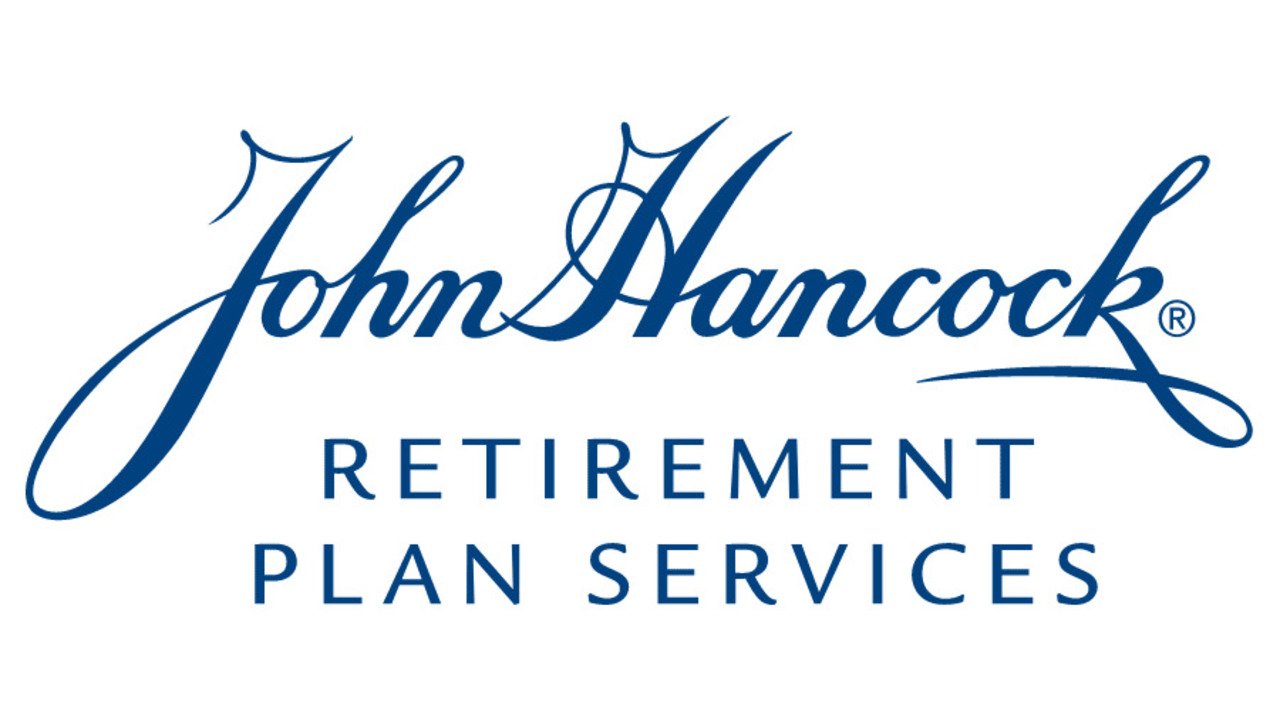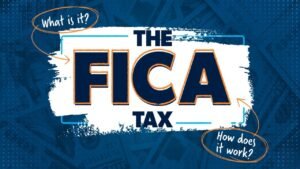Chartered Retirement Planning Counselor (CRPC®) Guide 2025.
Thinking about retirement can feel like a lot, right? It’s a big life change, and making sure your money is in the right place is a huge part of it. That’s where a Chartered Retirement Planning Counselor, or CRPC, comes in. These professionals focus specifically on helping people get ready for life after their working days are done. They’ve got the training to help you figure out your retirement strategy, making sure it fits with what you want your retirement to look like and what you need financially. The CRPC designation shows they’ve gone through a solid program focused just on this important stage of life.
Thank you for reading this post, don't forget to subscribe!Key Takeaways
- A chartered retirement planning counselor (CRPC) is a financial professional who has completed a specialized program focused on retirement planning. This designation is awarded by the College for Financial Planning.
- CRPC professionals study the entire retirement planning process, including pre- and post-retirement needs, investment strategies, Social Security, Medicare, asset management, and estate planning.
- The CRPC program aims to equip advisors with the skills to create a personalized retirement ‘road map’ for clients, addressing their unique financial goals and lifestyle aspirations.
- Earning the CRPC designation involves completing coursework, passing a final exam, and adhering to professional conduct standards. It requires continuing education every two years to maintain the credential.
- Working with a CRPC can help individuals better prepare for retirement by providing specialized knowledge in areas like navigating Social Security and Medicare, managing retirement assets, and reducing financial risks during their post-working years.
Understanding the Chartered Retirement Planning Counselor Designation
What a Chartered Retirement Planning Counselor Is
Thinking about retirement can bring up a lot of questions, and it’s smart to get some help figuring it all out. That’s where a Chartered Retirement Planning Counselor, or CRPC, comes in. Basically, a CRPC is a financial pro who really focuses on retirement. They’ve gone through extra training specifically for this, so they know the ins and outs of helping people get ready for life after work. They help create a plan, like a roadmap, to get you from where you are now to where you want to be in retirement. It’s not just about investments; it covers a lot more ground.
The College for Financial Planning and the CRPC
The CRPC designation isn’t just handed out. It’s awarded by the College for Financial Planning. This organization has put together a program that covers all sorts of retirement-related topics. Think of it as a specialized education for financial advisors who want to be experts in retirement planning. chartered retirement planning counselor They learn about things like how to manage money before and after you stop working, how to handle your investments for the long haul, and even how to sort out estate planning details.
CRPC vs. Other Financial Designations
It’s easy to get confused with all the different financial titles out there. While someone might be a great financial planner overall, a CRPC has a specific focus. For example, a Certified Financial Planner (CFP) usually looks at your entire financial picture – budgeting, insurance, investments, retirement, you name it. A CRPC, however, really hones in on retirement. They’re the go-to for questions about Social Security, Medicare, how to draw down your savings, and making sure your money lasts throughout your retirement years. It’s about specialization; they’re the retirement planning specialists.
Key Responsibilities of a Chartered Retirement Planning Counselor

So, what exactly does a CRPC do day-to-day? It’s more than just picking stocks. These professionals are really focused on helping you get ready for life after your main career.
Developing Retirement Road Maps
Think of a CRPC as your personal travel agent for retirement. They don’t just point you in a direction; they help you map out the entire journey. This involves sitting down with you, understanding where you are financially right now, and figuring out where you want to be when you stop working. They look at your income, your savings, your debts, and your spending habits. Based on all that, they help create a plan that shows you the steps you need to take to reach your retirement goals. It’s about making a clear path from today to your retirement day.
Addressing Pre- and Post-Retirement Needs
It’s not just about the moment you retire; it’s about the years leading up to it and the years after. Before retirement, a CRPC helps you make sure you’re saving enough, investing wisely, and managing any debt. Once you’re retired, their job shifts to helping you manage your money so it lasts. This includes figuring out how to draw income from your savings, how to handle taxes, and how to adjust your budget as needed. They consider things like healthcare costs and potential long-term care needs.
Guiding Clients Through Financial Transitions
Retirement is a big life change, and it comes with financial shifts too. A CRPC helps you manage these changes smoothly. This could mean helping you roll over a 401(k) from a former employer, deciding how to take distributions from retirement accounts, or understanding how Social Security and Medicare will work for you. They explain complex topics in a way that makes sense, helping you feel more confident about your financial future during this significant transition.
A CRPC’s role is to simplify the complex world of retirement planning, making it accessible and actionable for individuals at all stages of their careers.
Here’s a quick look at what they focus on:
- Income Planning: Figuring out how you’ll get money coming in during retirement.
- Investment Management: Making sure your savings are working for you.
- Tax Strategies: Minimizing the tax impact on your retirement income.
- Risk Management: Protecting your assets from unexpected events.
- Estate Planning Basics: Thinking about how your assets will be passed on.
Core Competencies of a Chartered Retirement Planning Counselor
Investment Strategies for Retirement
When you’re planning for retirement, figuring out how to invest your money is a big deal. A CRPC knows how to look at your situation and suggest ways to grow your savings. This isn’t just about picking stocks; it’s about building a plan that fits your timeline and how much risk you’re comfortable with. They consider things like:
- Asset Allocation: How to spread your money across different types of investments (like stocks, bonds, and cash) to balance growth and safety.
- Risk Management: Identifying potential downsides and putting strategies in place to protect your money.
- Inflation Adjustments: Making sure your investments can keep pace with rising costs over time.
The goal is to create a portfolio that can support your lifestyle throughout your retirement years.
Social Security and Medicare Navigation
These government programs can be confusing, and getting them right is important for your retirement income and healthcare. A CRPC can help you understand:
- Social Security Benefits: When to start collecting, how your choices affect your monthly payments, and how spousal benefits work.
- Medicare Options: The different parts of Medicare (A, B, C, D), enrollment periods, and how to choose the right plan for your health needs.
- Coordination: How these benefits fit with your other retirement income sources.
Understanding the ins and outs of Social Security and Medicare is key to avoiding costly mistakes that could impact your finances for years to come.
Asset Management and Estate Planning
Beyond just saving, a CRPC helps you manage your assets effectively and plan for what happens to them later. This includes:
- Withdrawal Strategies: Figuring out how much you can safely take out of your savings each year without running out of money.
- Tax Efficiency: Planning how to minimize taxes on your retirement income and investments.
- Estate Planning Basics: Discussing wills, trusts, and how to pass on your assets to your loved ones according to your wishes. They can also help coordinate with estate planning attorneys.
This part of planning is all about making sure your money works for you during retirement and then smoothly transitions to your beneficiaries afterward.
Earning the Chartered Retirement Planning Counselor Credential
So, you’re thinking about getting that CRPC designation? It’s not just a quick online quiz; it’s a structured process designed to really get you up to speed on all things retirement planning. The College for Financial Planning is the outfit behind it, and they’ve put together a program that covers a lot of ground.
Coursework and Study Program Details
The core of earning the CRPC is the coursework. It’s pretty thorough, covering everything from how to make the retirement planning process smoother for clients to the nitty-gritty of investing for retirement. You’ll also get into the details of Social Security benefits and how to bridge any income gaps that might pop up. Plus, there’s a focus on health care options in retirement and the emotional side of transitioning out of your working life. They even touch on tax and estate planning objectives, which are big pieces of the retirement puzzle for most people.
The CRPC Examination Process
Once you’ve gone through the study materials, it’s time for the exam. You need to score at least 70% to pass. It’s a timed, online test, and you get a couple of tries if the first one doesn’t go your way. Your exam score actually counts as your overall grade for the designation program, so it’s pretty important. After you pass, you apply to use the CRPC marks, which involves agreeing to certain professional standards and being upfront about any past conduct issues.
Maintaining the CRPC Designation
Getting the CRPC isn’t a one-and-done deal. To keep the designation current, you’ve got to do continuing education. That means completing 16 hours of approved courses every two years. It’s a way to make sure CRPC holders stay sharp and up-to-date with the latest in retirement planning. It’s a commitment, for sure, but it shows you’re serious about this specialized field.
Benefits of Working with a Chartered Retirement Planning Counselor
Thinking about retirement can bring up a lot of questions, and honestly, it can feel pretty overwhelming. That’s where a Chartered Retirement Planning Counselor, or CRPC, really shines. These folks are specifically trained to help you figure out the whole retirement puzzle. They’re not just general financial advisors; they’ve gone through extra training focused solely on retirement. This specialized knowledge means they can help you create a plan that actually fits your life and your goals for when you stop working.
Specialized Retirement Planning Expertise
A CRPC has a deep dive into all things retirement. They understand the ins and outs of things like:
- Social Security and Medicare: These programs can be confusing, and a CRPC knows how to help you make the best choices for your situation. Getting these right can save you a lot of money over time.
- Investment Strategies: They know how to set up investments that are geared towards growth before retirement and then shift to providing income during retirement.
- Asset Management and Estate Planning: This covers how to manage your money and what happens to it after you’re gone, making sure your wishes are followed.
Maximizing Client Retirement Experiences
It’s not just about the money, though. A CRPC helps you think about what you actually want your retirement to look like. Do you want to travel? Spend more time with grandkids? Start a new hobby? They help connect your financial plan to those life goals.
They focus on building a retirement ‘road map’ that considers not just your finances, but also your lifestyle aspirations. This client-centered approach aims to make your transition into retirement smoother and more enjoyable.
Reducing Financial Risks in Retirement
Retirement comes with its own set of risks, like outliving your savings or dealing with unexpected health costs. A CRPC helps you plan for these possibilities.
- Longevity Risk: Making sure your money lasts as long as you do.
- Market Risk: Protecting your portfolio from big market swings, especially when you’re relying on it for income.
- Healthcare Costs: Planning for medical expenses, which can be a significant part of retirement budgets.
By addressing these potential issues proactively, a CRPC helps you build a more secure and stable retirement.
Career and Earning Potential for CRPC Professionals

Impact of CRPC Certification on Earnings
Getting your CRPC designation can really make a difference when it comes to your paycheck. The College for Financial Planning itself says that folks who earn this credential often see about a 9% jump in their earnings. That’s not nothing! Think about it, if you’re already making, say, $70,000 a year, a 9% bump means an extra $6,300 in your pocket annually. It’s a pretty clear signal to employers and clients that you’ve got specialized skills in retirement planning, which is a big deal for people trying to figure out their golden years.
Job Prospects for CRPC Holders
Having CRPC after your name definitely opens doors. It shows you’re serious about retirement planning, which is a huge area for financial advisors. People are living longer, and they need solid plans to make sure their money lasts. This means there’s a steady demand for professionals who know their stuff when it comes to retirement income, Social Security, Medicare, and estate planning. While it’s not the only designation out there, it’s a strong one that can set you apart from others who might have a more general financial background.
Continuing Education Requirements
Once you’ve earned your CRPC, you don’t just hang it up and forget about it. To keep using the designation, you’ve got to stay current. This usually means completing a certain number of continuing education hours every couple of years. The College for Financial Planning requires 16 hours of continuing education every two years, plus paying a small fee. It’s all about making sure you’re up-to-date on the latest rules, strategies, and market changes that affect retirement planning. It keeps your skills sharp and shows clients you’re committed to the profession.
Wrapping Up Your Retirement Planning Journey
So, when you think about getting your retirement in order, it’s not just about saving money. It’s about having a solid plan that covers all the bases, from when you stop working to how you’ll manage your money and health. That’s where someone with a CRPC designation can really step in. They’ve gone through specific training to help folks like us figure out this whole retirement thing. It’s a lot to take in, but having a specialist who knows the ins and outs of retirement planning can make a big difference in feeling more secure about your future. They’re there to help you build that roadmap, making sure you’re prepared for whatever comes next.
Frequently Asked Questions
What exactly is a Chartered Retirement Planning Counselor (CRPC)?
Think of a CRPC as a special kind of financial helper. They focus specifically on getting you ready for retirement. They know all about planning for when you stop working, like figuring out how much money you’ll need and where it will come from. They help create a plan, kind of like a roadmap, to make your retirement years comfortable.
What does a CRPC do to help people retire?
CRPCs help you plan for retirement by looking at everything you need. This includes figuring out how to save money, how to invest it wisely for retirement, and how to manage your money once you’ve stopped working. They also help with important things like Social Security and Medicare, and making sure your money lasts.
How do you become a CRPC?
To become a CRPC, you have to go through a special learning program created by the College for Financial Planning. You’ll study different topics about retirement, like saving, investing, and planning for life after work. After the classes, you have to pass a test to show you know your stuff. You also need to keep learning and pay a small fee every couple of years to keep your title.
Is a CRPC different from other financial advisors?
Yes, CRPCs are specialists. While other financial advisors might help with all sorts of money matters, a CRPC’s main job is retirement planning. They have extra training focused just on retirement, so they’re experts in that specific area.
How much more money can I make if I become a CRPC?
Getting the CRPC title can give your earnings a boost. Reports show that people with this certification often earn about 9% more than those without it. It shows you’re serious about retirement planning and have special skills.
Why should I work with a CRPC for my retirement plans?
Working with a CRPC means you’re getting help from someone who really understands retirement. They can help you make smart choices about your money, avoid common mistakes, and feel more confident about your future. They aim to make your retirement experience as smooth and enjoyable as possible.













